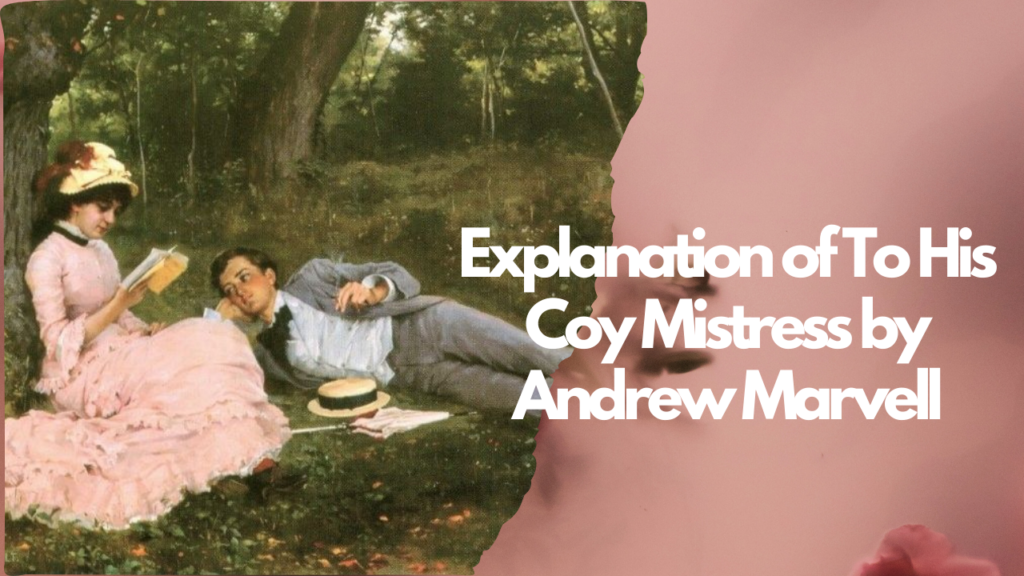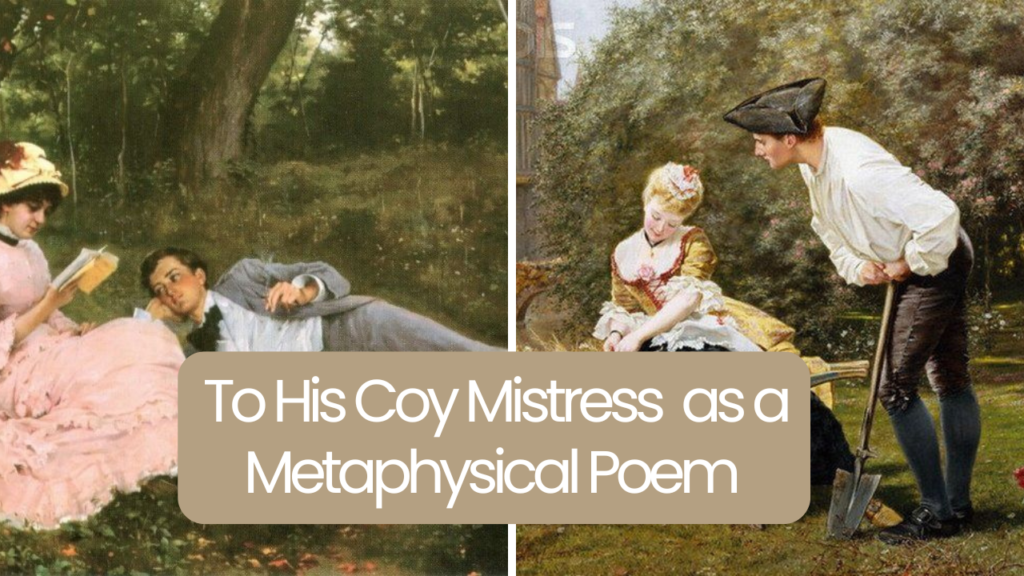Introduction
To His Coy Mistress is a clever, well-structured metaphysical dramatic monologue, possibly by Andrew Marvell. In this poem the poet figuratively puts in persuading his beloved for a sexual lift. The poem begins with an initial promise, which is followed by qualification of promise and ends with a resolution to sexual conflict. Marvell, like other metaphysical poets, used wit, rhetoric and conceit with the theme of carpe diem which means “seize the day.” The final use of carpe diem in Marvell’s poem is rather passive, complex and ambiguous.
Condition of Unlimited Time
The poem commences with a condition that if they had enough space and time at their disposal, then coyness of the lady would not impose on their love. Instead they would have determined how to pass their courtship time. The lover proposes that in his own pleading process, the beloved should roam beside the Indian Ganges while he would stay far away by the side of Humber complaining of his mistress’s cruelty.
As there would have enough time, he could express him of the courses of Jews and the poet should have loved her ten years before the Flood or the Deluge. The poet has incorporated the Biblical themes to portray his message for her beloved—indeed he would have enormous time to appreciate every body part of the mistress as she deserves all their praises and the poet is compelled to love her not at a lower pace.
Use of Counter Argument
The conjunction “But”—at the beginning of the second stanza prepares the ground for counter argument.
The Inevitability of Time
Possibly had they been free from the devastating influence of time! The reason for immediate lovemaking is thus given in full lines:
But at my back I always hear
Time’s winged chariot hurrying near.
Indeed, before the lovers lie the eternity of death. It is like a warning from the poet that after death there is loneliness that will embark them anytime. Therefore the beauty shall no more be possessed by the beloved nor in her marble tomb she can hear the echoing song of the poet.
The Reality of Death and Virginity
Then who will have the pleasure of the beloved’s virginity? The poet states that it will be the worms. This shows the nature of real lovers vying for immediate sexual love. The resolution that even if the beloved’s “fine and private place”—that place would not be embraced by anyone else. The reality is recognized in an ironic effect.
Seizing the Day
The third stanza that shows a synthesis presents the age-old conventions of the victory of time over eternity. But Marvell’s presentation is strikingly different. Now, on the verge of total destruction, the speaker appeals to “seize the day,” to enjoy amorous love while she is young and the “youthful hue” sits on her like “morning dew.”
The lover fervently and passionately appeals to the beloved to shake off her excessive shyness and make use of time. The mention of amorous birds of prey suggests that lovemaking would not be calm and sweet, but rather violent and vehement. They would allow the time to run after them. Thus, the inevitability of death is accepted, but not allowed to defeat or dominate.


